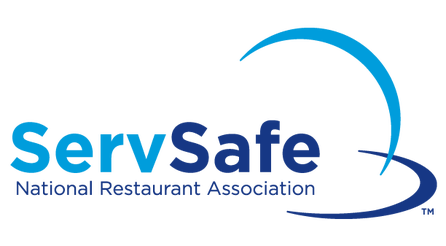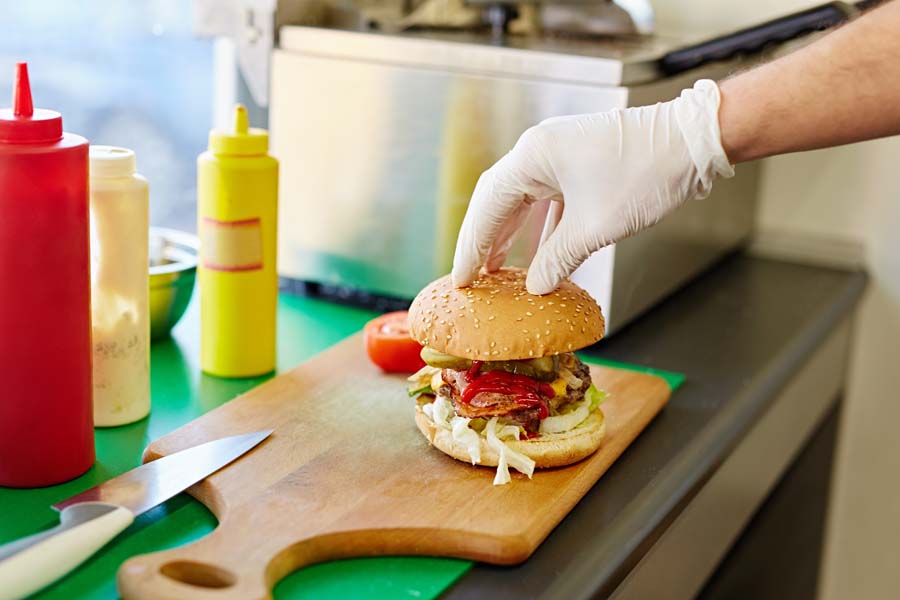Boost Your Work Opportunities: Why a Food Handler Certificate Is a Must-Have in the Culinary Sector
In today's competitive cooking landscape, the importance of a food handler certification can not be overemphasized. As restaurants and food solution establishments progressively prioritize certified team, specialists furnished with this accreditation stand to get a significant benefit.
Relevance of Food Safety And Security
In the cooking market, the significance of food safety can not be overemphasized. Polluted food can lead to serious wellness problems, including foodborne ailments, which can affect individuals and lead to considerable obligation for food establishments.
Food safety encompasses a series of procedures, including correct food handling, storage space, food preparation, and offering techniques. Sticking to these practices not just reduces the risk of contamination however likewise helps in adhering to local wellness regulations. Appropriate training in food safety and security enables cooking professionals to identify prospective hazards and apply precautionary measures properly.
In addition, a solid commitment to food safety can enhance the track record of a culinary establishment, fostering client loyalty and company growth. Customers are significantly familiar with food safety and security issues, making it crucial for food trainers to show their adherence to ideal practices. Ultimately, prioritizing food safety is not just a governing demand; it is a fundamental facet of offering quality food service and shielding the health of customers.

Accreditation Needs
Food safety practices are only as effective as the people implementing them, making accreditation a crucial step for food trainers in the culinary sector. To get a Food Trainer Certification, candidates need to typically finish a training program that covers necessary subjects such as foodborne ailments, sanitation, personal hygiene, and secure food dealing with techniques.
Many certification programs are created to accommodate different finding out designs, supplying alternatives for online, in-person, or hybrid layouts. Participants need to pass an exam to show their understanding of the product, with a minimum passing rating often evaluated 70%.
The duration of training can vary, with some programs calling for just a couple of hours, while others might cross numerous days. After efficiently finishing the training course and examination, candidates obtain their certification, which is normally legitimate for 3 to five years, relying on local guidelines.
Revival frequently includes taking back the course or finishing a refresher course program to guarantee that food handlers remain updated on the most up to date techniques and criteria. Conformity with these qualification requirements not only improves private knowledge however also adds to the general safety and security and quality of food solution procedures.
Task Market Need
The need for food handlers has actually considerably raised, mostly driven by the expanding awareness of food security and hygiene amongst consumers and governing bodies. With the surge of foodborne ailments, restaurants, catering services, and food manufacturing companies are prioritizing the hiring of qualified food trainers to find more info guarantee conformity with health laws.
In addition, the broadening restaurant market, especially with the appearance of food shipment services and food vehicles, has actually created a wealth of job chances for food handlers. The demand for knowledgeable workers that can securely prepare and take care of food has actually come to be extremely important. servsafe food handler certificate. Furthermore, as cooking businesses take on extra rigid security procedures, the worth of a food trainer certificate has actually increased, making it a vital property for job seekers
Consequently, individuals going into the culinary labor force are discovering that getting a food trainer certification not just enhances their employability but also places them favorably in an affordable job market that progressively prioritizes food security and hygiene requirements.
Benefits of Accreditation
Obtaining a food trainer certification provides numerous benefits that substantially boost a specialist's standing in the cooking industry. It demonstrates a dedication to food security and hygiene, which is critical in avoiding foodborne diseases. servsafe food handler certificate. This certification furnishes individuals with necessary knowledge regarding risk-free food taking care of practices, consisting of appropriate storage space, cooking temperatures, and sanitation procedures
Furthermore, having a food handler certification can enhance address an individual's employability. Lots of employers focus on prospects with this certification, seeing it as an indication of expertise and expertise. This can lead to much better work chances and potentially greater wages, as qualified individuals are often left with higher obligations.
Furthermore, the accreditation cultivates a society of safety and security and accountability within the work environment. It not only enhances a staff member's self-confidence in their abilities but also promotes a more secure setting for consumers and coworkers alike. Preserving a food trainer certificate can open doors to more educational and profession innovation opportunities within the cooking field. Overall, this certification is a critical financial investment that benefits both experts and the facilities they serve, ultimately adding to a flourishing cooking sector.
Actions to Get Licensed
Obtaining a food handler certification includes a straightforward procedure that can set people on a path to boosted job leads in the cooking industry. The initial step is to locate an approved program or training company that offers food safety programs. Numerous companies supply both in-person and on-line alternatives, permitting adaptability in discovering.

After efficiently passing the test, people will get their food trainer certificate, which is often legitimate for a details period, typically 3 visit our website to 5 years. To keep qualification, it may be necessary to finish correspondence course or retake the exam before the expiry date.
Lastly, it is essential to confirm any regional or state-specific policies pertaining to food handler accreditation, as demands can differ. By complying with these steps, people can acquire their certification and considerably enhance their employability in the affordable cooking landscape.

Conclusion
Finally, getting a food trainer certificate is vital in the culinary industry, as it guarantees adherence to food safety standards and boosts employability. With the expanding demand for qualified workers, this credential not just opens doors to work chances yet likewise adds to profession development and enhanced making potential. Ultimately, a food handler certificate indicates a dedication to safety and security and professionalism and reliability, fostering a society of accountability that profits both staff members and employers in the food solution field.